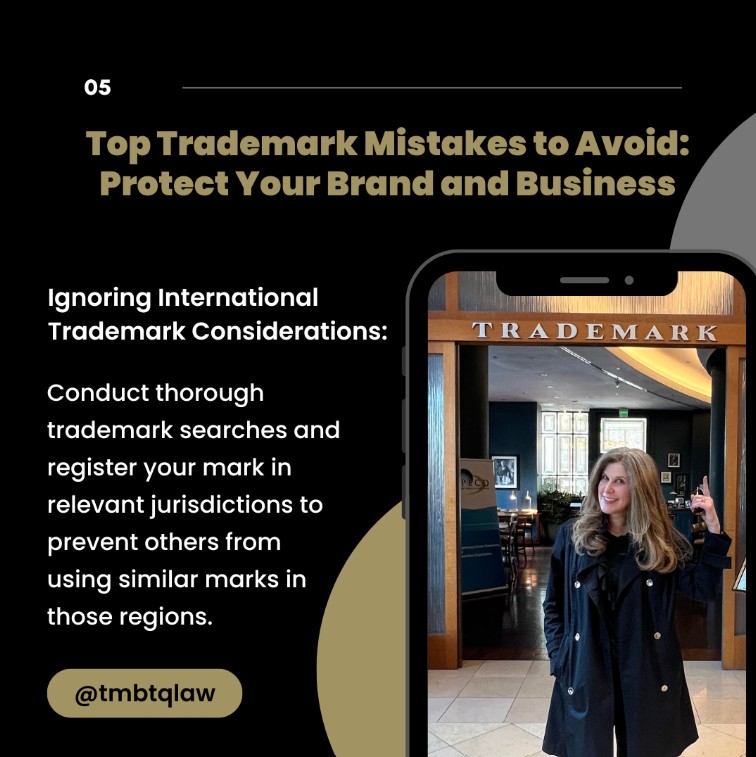In the latest trademark scam, at least half a dozen of my clients have gotten odd and rather threatening emails that come into variations. One even got a voicemail! This is both a violation of the Rules of Professional Conduct, which prevents attorneys from communicating with represented parties, and downright sleazy. Several variations of the scam exist, but one thing they all have in common is causing the recipient to question whether their brand or company name is at risk of being taken over by an unrelated party. I’ve made 3 videos about these scams, which you can access here or watch the full video below:
Variations of the Scam:
Trademark Scam #1: False Claims of Trademark Infringement
Some emails are from people claiming to be attorneys, alleging that my client’s company name is under threat of being taken by another party in another state, and that if my client doesn’t take action, they’ll lose rights in the name of their business. For instance, one of my clients transcribed the voicemail she received as follows:
Good morning D__, This is Attorney Daniel B___. If you may recall, you submitted an application with the USPTO for your Business Name “BIZ NAME” to trademark – Legal/ Federal rights under your ownership but later got abandoned on OCT. 16, 2023, Serial Number : 94/xxx,xxx when you failed to file a Statement of Use. This is to inform you that we’ve received a similar application to register the business name “[TRADEMARK NAME]” from the State of New York for the trademark in all 50 States. Kindly update if you want to protect this name or shall I move forward with the other applicant?
Some of these messages also assert that failure to act could result in the new party claiming trademark infringement against my client. However, it’s crucial to recognize that individuals possess common law rights to their company names or brands, even without formal registration. There is some truth to the fact that a company name or brand that is not yet registered with the USPTO may be registered by a third party; however, the first user who has “common law rights” can file an opposition to any such application based on their prior use. While opposing trademark applications can be cumbersome, and IT IS A GOOD IDEA TO PROTECT YOUR COMPANY OR BRAND NAME WITH THE U.S. PATENT AND TRADEMARK OFFICE, someone else filing doesn’t necessarily endanger your ownership rights. These emails scream of sleazy alleged lawyers trying to scare people into hiring them. If you are not sure whether the communication you’re receiving is a scam or not, feel free to contact us and we can clarify.
Trademark Scam #2: Misrepresentation of Existing Trademark Registrations
Another variant involves fake law firms alleging that a recipient’s registered trademark is at risk of “abandonment.” This tactic also aims to pressure recipients into taking action. It’s important to understand that while trademarks require periodic renewal, the assertion that a trademark registration can be “abandoned” is legally inaccurate. Trademarks require periodic renewal but don’t become abandoned; they are canceled if renewal documents are not filed. An application that is still pending may become abandoned if deadlines are not met, but registered trademarks can never be “abandoned.”
To verify the legitimacy of such claims, individuals can consult their attorney or directly check the status of their trademark with the US Patent and Trademark Office (USPTO).To combat such scams, individuals can verify the credibility of the sender by checking with relevant authorities, such as the California Bar Association.
Identifying Red Flag Trademark Scams
Here are some ways you can tell if the email is legitimate or not:
- False Representation: Scammers may misrepresent their credentials, such as falsely claiming extensive legal experience or using the identity of deceased individuals.
- Unsolicited Correspondence: Be cautious of unsolicited emails or letters demanding urgent action without prior engagement.
- Telephone Calls: The USPTO will almost never call an applicant unless there is a prior written communication. Formal communications will be directed to the correspondent of record and will usually be in the form of a formal written Office Action.
Protect Yourself:
- Verify Claims: Consult trusted legal counsel or directly verify the status of your trademark with the USPTO to confirm the legitimacy of any claims.
- Stay Informed: Keep abreast of common scams and fraudulent tactics targeting trademark holders to better recognize and avoid potential threats.
- Report Suspicious Activity: Report any suspicious correspondence to relevant authorities, such as the USPTO or local law enforcement.
Safeguarding your trademark rights is important in today’s business landscape fraught with scams and fraudulent activities. By remaining vigilant, verifying claims, and seeking assistance from trusted legal professionals, you can protect your intellectual property from exploitation. If you ever have questions and we represent you, feel free to reach out. We’ll be happy to check the status of your trademark at no charge or get you started on a new registration.



